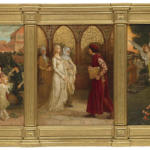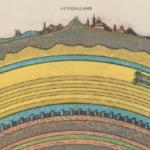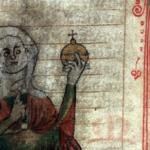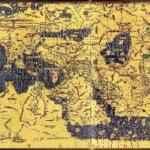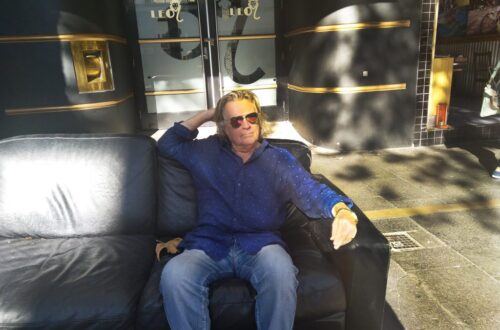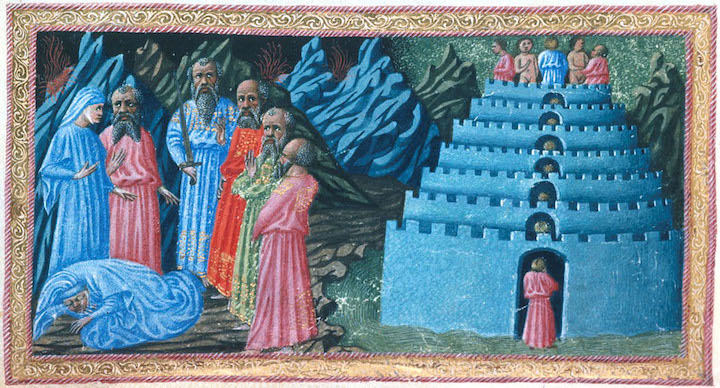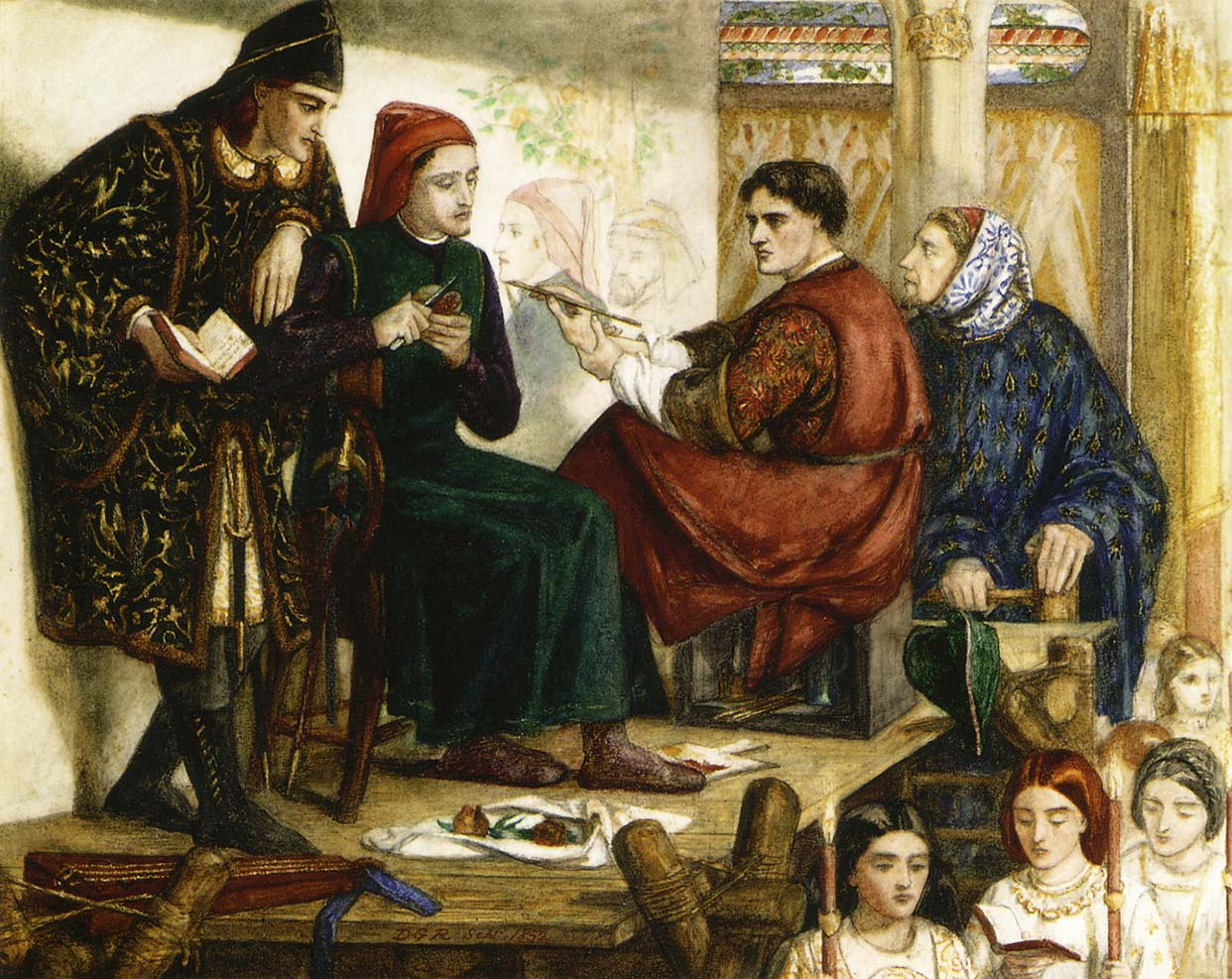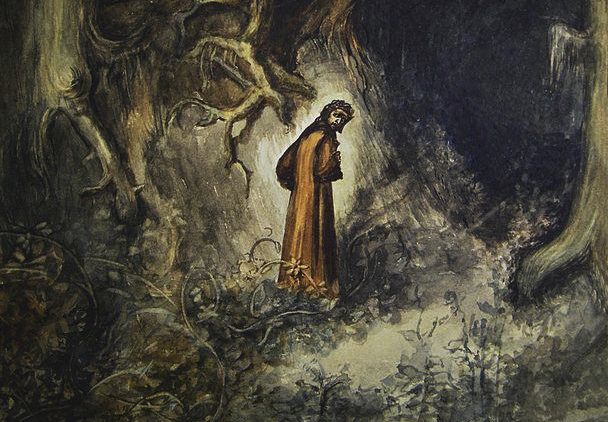
The Divine Comedy begins: Lost and on the Road to Hell
The Dante Alighieri of the Divine Comedy is lost. He needs help and is afraid. He doubts himself and often weeps at the human suffering or folly he will see on his journey. Will he be able to reach the end? He doesn’t know. It’s this kind of frail humanity of Dante’s poetry that still speaks to us across hundreds of years.
Dante writes in the first person, and that’s part of his magic. We see the world through his eyes, as if we ourselves were sharing the journey.
Indeed Dante says we are. Nel mezzo del cammin di nostra vita, the poem begins: In the middle of the journey of our life. There is nothing particular about Dante being the character of the poem, for the poetry is about the human experience. Dante is no hero. Like ordinary mortals, he has no magical powers. He is not Aeneas and he is not St Paul (both of whom were reputed to have made the journey). He is just someone seeking the way in the journey of life and it is only with the help of ghostly and divine mentors that he will be able to find his way.
As the poem starts it is Good Friday in the year 1300. Not coincidentally, in the religious calendar which Dante knew, it is the day in which Jesus is crucified and disappears into the earth, enacting a universal cycle of death and rebirth. The hell which Dante knew was literally under the Earth and he disappear under the death himself and find metaphorical rebirth on his own journey.
Yet on the same date in the year 1300 in the real world, the historical Dante is at the height of his powers. He is Dante Alighieri Prior: a powerful political leader of Florence. While he doesn’t know it yet, his world is about to collapse. He is lost in the fratricidal and dark politics of his city. His fall, when it comes, is great. Dante is stripped of his wealth; exiled and condemned to death by his own city. As a wandering beggar poet he is compelled for the rest of his days to earn his living by his writings.
In the poem, his alter ego, the Dante of the Divine Comedy sleepily awakes and finds himself lost in a dark wood. It is a bitter place: “wild” and “strong”, so fearful that death itself is “little more”. He doesn’t know how he got there. Nor does he know the way or where to go.
Dante meets Virgil: his first guide
After a night of wandering he sees hope. There is opening in the wood and a hill, behind which gleams the sun of heaven. Yet as he tries to reach it, three fierce beasts block his way: a leopard or ghepard, a lion and a wolf. As the wolf drives him back, he sees a dark figure and calls out in fear:
...
“Miserere di me,” gridai a lui,
“qual che tu sii, od ombra od omo certo!
”Rispuosemi: “Non omo, omo già fui,
e li parenti miei furon lombardi,
mantoani per patrïa ambedui.
...
"Have pity on me," unto him I cried,
"Whiche'er thou art, or shade or real man!"
He answered me: "Not man; man once I was,
And both my parents were of Lombardy,
And Mantuans by country both of them.
(Henry Wadsworth Longfellow translation of the Divine Comedy, from Canto I)
It is the shade of the ancient Roman poet Virgil: Dante’s poetic inspiration. Virgil is willing to help him. However, the three beasts bar the direct way to the hill. Virgil tells him that the wolf he faced is so fierce that it will kill him and that the wolf’s hunger is never satisfied, no matter how many it devours. Instead, he must follow Virgil through hell. It will be a difficult journey but it is the way Dante needs to take. He will pass through hell, then purgatory and finally heaven. Dante tells us the story of these three stages in the three parts of the Divine Comedy: Inferno, Purgatorio and Paradiso.
Dante agrees and begs Virgil to lead him to the gate of St Peter, but as Virgil lived in pagan times, he tells Dante that he can only lead him part of the way, for he cannot enter the Christian heaven. Another guide will take Dante on further.
The Many Meanings of the Divine Comedy
So far we have briefly summarised Canto 1 of the Divine Comedy. Already we begin to see that this poetry might be read in more than its obvious sense. That his works contained many meanings, and we can read it as allegory as well as literally, Dante himself wrote to one of his chief patrons. Over the following centuries teasing out the hidden meanings of his work has sustained a vast scholarly conversation and a vast range of interpretations.
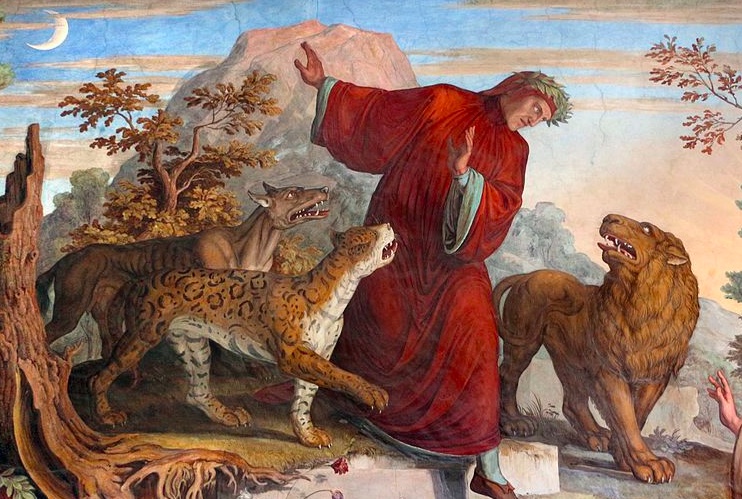
The Three Beasts and the Greyhound
We see this for example in the three beasts through which Dante conveys multiple meanings. The three beasts are similar to the lion, wolf and leopard of a biblical passage in Jeremiah. There they represent different kinds of sin, and they devour the leading men of Jerusalem. In this respect commentators have suggested the three beasts as represent sins such as lust, pride and avarice.
However, Dante makes clear that at least one of the beasts also exists in time and space for he has Virgil prophesy that a “greyhound” (veltro) will come and end the she-wolf’s killing and free “Italy”. The greyhound might be a political leader or the return of Christ. In this version the three beasts are symbolic of Dante’s political enemies – his political enemies in Florence, the French king who was summoned by the Pope to overthrow Dante’s faction in Florence, and the temporal papacy itself.
The more earthly interpretation, does not exclude the moral, but this other reading also makes sense when we recall that Dante’s political views favour the primacy of the Emperor over Pope in temporal matters. It was a view formed in the bitterness of his own exile from his native land in an era when pitched battles were being fought over the relationship between Emperor and Pope.
This is just one of many instances where we will see the ethical and universal overlaid on narratives connected with events and people in Dante’s own time. A parade of Florentines and many others will tell the story as we meet them in the layers of hell.
However, the point of the journey, for us, is to learn about the kind of human tendencies that the three beasts represent and face and overcome them in ourselves.
Dante isn’t quite at the gates of hell, and there is still more to see before he and his guide pass within. However, nothing beats reading, and hearing, Dante’s verses for yourself.
Italian Reading of Inferno Canto I of the Divine Comedy with English text
Images
- Dante Perdu dans la forêt oscure, illustration by Gustav Dore 1861
- Joseph Anton Koch, dante nella selva trova le tre fiere e virgilio, 1825, Casa Massimo Frescos, Sailko, Wikimedia Commons Creative Commons Licence
Sources
Dante’s History Podcast Mallon Khan
V. Stanley, III Benfell, the Biblical Dante, University of Toronto Press, p 82
Princeton Dante Project, annotations to Inferno Canto 1
Christina Mazzoni, She Wolf – the Story of a Roman Icon, Cambridge University Press, 2010, p 125
Dante Alighieri and Mark Musa, Dante’s Inferno, the Indiana Critical Edition, Indiana University Press, p 295
James C. Kreisel, Allegories of the Corpus in The Cambridge Companion to Dante’s Commedia, Cambridge University Press, p 116
John A Scott, Understanding Dante, University of Notre Dame Press, 2004
Barbara Reynolds, Dante, The Poet, the Political Thinker, the Man, I.B. Taurus and Co, 2006
